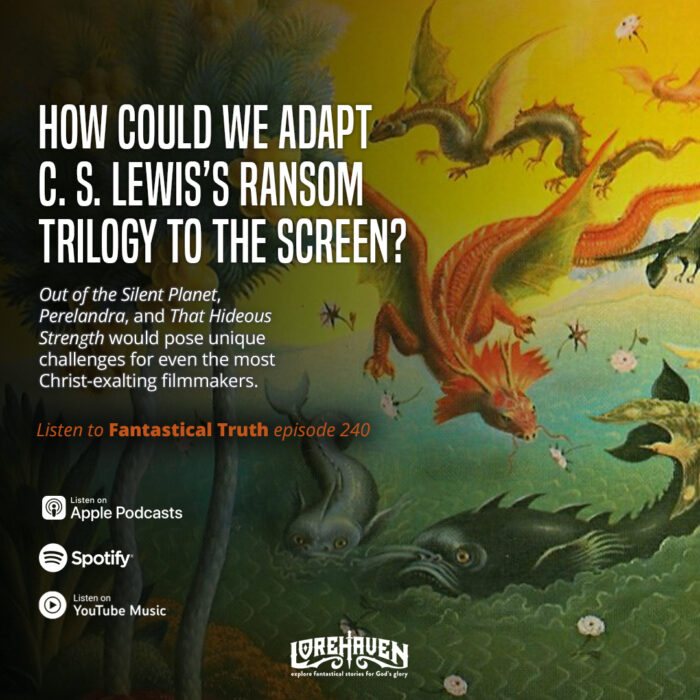Guilt By Association?
If you do your job as a Christian, someone will always Associate you with evil sinners.
Imagine you invite three people for dinner into your home: a neo-Nazi, a Sexualityism1 activist who hates Christians, and Donald Trump. You don’t approve of their behavior. You tell them so. You also connect with them over shared interests. (Maybe you all like the same anime.) And you share the gospel of Jesus Christ. That’s what you do, as a missionary.2
You manage to have a nice dinner, and then snap a few photos. After your guests leave, you share one or two photos on social media. You say something like, “Enjoyed dinner with X, Y, and Trump, discussing our differences, similarities, and sharing the gospel of Jesus.”
Then your guests share these photos too, in their own special ways.
The neo-Nazi puts white racial supremacy propaganda all over his hashtags.
The Sexualityism activist is nice about you, but slanders other Christians and Jesus.
Trump or his publicist tweets out whatever they do because I’m not even going there.
 And before you know it, at least three entirely different species of troll are clubbing at your virtual door and maybe your physical door. This person eats and even poses for friendly photos with tax collectors and sinners! He has been Associated with white supremacy, Sexualityism, and a divisive political figure. Outrageous. It’s simply outrageous!
And before you know it, at least three entirely different species of troll are clubbing at your virtual door and maybe your physical door. This person eats and even poses for friendly photos with tax collectors and sinners! He has been Associated with white supremacy, Sexualityism, and a divisive political figure. Outrageous. It’s simply outrageous!
Welcome to the world of Evil Associations. In this world, doing your job as a Christian—living in community with flawed or terrible other Christians, and sharing the gospel with a dead-in-sins world—always, always gets you Associated with some bad person or group.
In fact, Christian fantastical fiction fans may have it worse, because they get associated with at least five different bad(?) groups:
- Christians, because that’s what we are;
- escapists, because we enjoy fantastical stories;
- legalists, because we have some moral views;
- licentious Christians, because we don’t agree with some notions of “evil” stories;
- and worldly compromisers, because we don’t think popular culture is all good or all evil.
I’m sure this has happened to you. It’s happened to many others too. You’re not alone:
- As we saw last week, some Christians were disturbed or angered by a video in which male ballet dancers performed in a New York City church. Right or wrong, these viewers Associated the dance with “effeminate” men, or some other kind of sin.
- An internet acquaintance of mine, Karen Swallow Prior, who teaches English and literature at Liberty University, ministers to nonbelievers, including to alternate-sexuality advocates. This angered quarrelsome “discernment” bloggers, who slander this professor and Associate her with people who hate a biblical view of marriage.
- Christian apologist and scholar Dr. James White, who has spent decades debating people from other religions, including Muslims, changes his format once. In January he joins a Muslim scholar, Dr. Yasir Qadhi, for a two-part dialogue (not debate) about the differences between Christianity and Islam.3 Months later, quarrelsome “discernment” bloggers and radio host(s) get ahold of this information. They go and Associate a Christian brother with compromisers, “useful idiots” to be duped by terrorist-sympathizing Muslims, who want to destroy the United States and overthrow the Constitution with sharia law.
Shameful, just shameful, all this I hear about @DrOakley1689. Why does he eat with tax collectors, sinners, and Muslims?
— E. Stephen Burnett (@EStephenBurnett) July 20, 2017
In all this, I must fight my own Associations. As I mentioned last week, I also instinctively Associate ballet dancing (or dancing in general) with something not natural or human—though dancing is one of the most human activities in the world and I’m wrong. It’s hard not to Associate all discerning Christian bloggers with internet slanderers. And it’s very hard not to Associate all of White’s attackers with prophecy-crazed, gold-hoarding nuts.
In these cases, we need to look to Scripture for wisdom, not the internet or our feelings. Does it glorify God if we avoid all possible associations with sinners or things used for sin?
Does Jesus condemn association with sinners?
Several Scriptures warn against one type of Association with sinners, but not others.
- It’s good to associate with sinners to love and share the gospel with them.

From The Passion of the Christ (2004).
Jesus’s hypocritical enemies condemned Him for personally Associating with sinners:
And the scribes of the Pharisees, when they saw that he was eating with sinners and tax collectors, said to his disciples, “Why does he eat with tax collectors and sinners?” And when Jesus heard it, he said to them, “Those who are well have no need of a physician, but those who are sick. I came not to call the righteous, but sinners.”4
To the Pharisees, getting near a sinner meant you were yourself sinning—a wrong view.
- It’s bad to associate, as professing Christians, with a falsely professing Christian.
But Jesus and His apostles warn against associating with false(?) Christians in the church:
I wrote to you in my letter not to associate with sexually immoral people—not at all meaning the sexually immoral of this world, or the greedy and swindlers, or idolaters, since then you would need to go out of the world. But now I am writing to you not to associate with anyone who bears the name of brother if he is guilty of sexual immorality or greed, or is an idolater, reviler, drunkard, or swindler—not even to eat with such a one. For what have I to do with judging outsiders? Is it not those inside the church whom you are to judge? God judges those outside. “Purge the evil person from among you.”5
Paul says we shouldn’t enable a Christian who claims the faith but isn’t acting like it. He contrasts this with the notion of separating from the very dark world that needs us: “since then you would need to out of the world,” a thought unthinkable to godly missionaries.
- It’s bad to associate the label “Christian” with leaders who don’t teach the gospel.
Everyone who goes on ahead and does not abide in the teaching of Christ, does not have God. Whoever abides in the teaching has both the Father and the Son. If anyone comes to you and does not bring this teaching, do not receive him into your house or give him any greeting, for whoever greets him takes part in his wicked works.6
The apostle John warns about anyone who “comes to you” with anti-biblical teaching. They shouldn’t come “into your house,” that is, to teach in your home (the only place you could have church meetings back then). You don’t “greet” them either. Back then, that didn’t mean just saying hello, but actively showing you’re spiritually aligned with this person.7
As Christian fantastical story fans, how can we practice good Associations and avoid bad Associations?
Aye, there’s the rub. Because we’re all still figuring this out, aren’t we?
This goes double for situations that aren’t in local churches. Here the limits for teaching and membership are much clearer, e.g., “Only qualified Christians allowed, but everyone else is welcome to stop by and be our friend and get our love while learning the gospel.” The local church’s goal is to work differently. It has “genre” limits. If you make the local church look like the world, or try to make the world look like the local church, things go bad.
 But in all other areas, things are fuzzier.
But in all other areas, things are fuzzier.
You can’t treat an organization, friend group, website, fandom, or conference like a church!
At the same time, we must clarify what beliefs, and behavior, do or don’t align with Jesus.
Lord willing, for my part, I’ll spend the rest of my life trying to balance these two missions. Already these challenges have begun, even thanks to my work at Speculative Faith:
- Of course, people Associate fantastical fiction with evil magic/sorcery, or at best a waste of time when so many people abuse entertainment, while really, shouldn’t be only preach the nonfiction gospel and not be distracted by all this worldly stuff?
- At least one novelist who wrote for SpecFaith now Associates himself (no outside help needed) with the “alt-right” movement. Another writer, whom I personally recruited for a guest article or two, has gone on to disavow the biblical gospel of Jesus; he now favors a “liberal”/progressivist version of Christianity. Both articles remain up. So if someone wanted to, they could Associate this web ministry with either of those false movements. They could accuse us and ask, “Why didn’t you predict these guys would go there?”
- I also write for for Christ and Pop Culture and for Christianity Today, and some folks (even a family member or two) aren’t thrilled that I’m now Associated with them. Doesn’t CAPC have a “social justice warrior” bent? Doesn’t Christianity Today write about heretical teachers as if they’re Christians, and fail to condemn other unorthodox movements?
- And of course, if you say anything positive about, say, Trump, I would get Associated with his nastier fans (nationalists who go too far, along with racist). But if I say anything negative about Trump, I’d get Associated with his nastier enemies (country-club elitists who can’t confront the evil media). Say nothing at all? That’s likely the wisest course, but then people can rightfully charge you with being complicit with (a) dictator(s).
So far, all that’s quiet. But in an internet age of hot takes and impulsive reactions, it’s only a matter of time. In fact, this ministry and others want to reach even more fans, to promote Christian-made fantastical stories and a Christian view of all fantastical stories. So it is inevitable we, and I, will get Associated with sinners no matter what we do.
How do we address these situations when they arise?
On a case-by-case basis. In love. With respect and gentleness, yet truth. And always, always, based on Scripture over emotions.
Especially as we head into the Realm Makers conference next week (Reno, Nevada, July 26-30!), please pray for this ministry of Speculative Faith. Pray for all of our writers and allies, and their various Associations with others. Pray for the Realm Makers organizers! And pray for the success of our future projects, for Jesus’s sake and our readers’ glorification of Him.
- “Sexualityism” is my term for the nation’s fastest-growing religion. Its believers value sexual preferences and expressions as the highest purpose of humanity. They view as their enemies any other religious believers who hold other values or gods as higher. ↩
- All Christians are missionaries, whether in their immediate area, or in faraway lands. ↩
- Night one (video): Hosted by a biblical church, not in the worship service, and with free tickets and promotion so people knew what they were getting. Dr. White asked Dr. Qadhi questions about Islam so the audience could understand this religion better. Night two (video): Hosted by an Islamic center nearby. This time, Dr. Qadhi asked Dr. White questions about Christianity, including specific questions about Jesus and the gospel, so their Muslim audience could understand Christianity better. Despite similarities to an “interfaith dialogue,” in which (liberal?) players cover over their differences and make nice, at no time did doctors Qadhi or White dismiss their differences. They acknowledged them openly, and by the end even addressed a big question: how do you love and serve your other-religious neighbor when you and he both believe the other is literally going to Hell someday? ↩
- Mark 2:16-17 (ESV). ↩
- 1 Corinthians 5:9-13 (ESV). ↩
- 2 John 9-11, ESV. ↩
- I’ve found Dr. James White’s reminder about this text helpful at 2 John 9-11 Examined. Many people have thrown this text against White for his supposed “receiving” of Qadhi into God’s house to teach. But as White points out, Qadhi was never presented as a Christian teacher in the way the apostle John condemns. They made their differences very clear. ↩












































The moral I take from this (very probably the unintended one) is that if you’re gonna piss someone off, might as well do what you figure is best. To quote Uncle Kurt Vonnegut (he’s everyone’s cool/weird, cussing uncle!):
“Hello babies. Welcome to Earth. It’s hot in the summer and cold in the winter. It’s round and wet and crowded. On the outside, babies, you’ve got a hundred years here. There’s only one rule that I know of, babies — ‘G** d**n it, you’ve got to be kind.'”
PS: All the gay people I’ve ever met don’t think the highest aim of humanity is to be sexual. I’d like to see the poll where you’d get those stats from. “What is the highest (concrete) aim of humanity? A) Self-determination, B) Space exploration, C) Achieve the least amount of suffering, D) Filthy butt-touching.”
This is actually a very charitable phrasing. 🙂 Biblical Christians believe that, by nature and from birth, the person not redeemed by Jesus is dead-set against the supremacy of God (who rules and sets rules) in His own universe. This applies to our sexuality and to everything else were given: we want God’s gifts and not God himself, on our own terms, not His.
People may deny this … but this idolatry affects us all. Only Jesus can save us from it.
Similarly, all professing Christians would deny that they believe the “gospel” of Americanism is more important than the actual Gospel. Yet their actions speak louder than words.
Eh, that argument just strikes me as being as absurd and reductionist (and also absurd) as saying that letting boys play with dolls will destroy society. Thus, Calvinism, I guess.
You’re setting yourself up for a false dilemma, because there’s no compelling reason to believe it’s that all-or-nothing, especially considering a lot of this is based on human interpretation. Yes, even Calvinism is based on interpretation.
You’ve wrongly interpreted my beliefs as being simplistically “Calvinism.” This is incorrect. Christians have believed since the beginning that men and women are different, and that marriage ought to occur only between one man and one woman, based on the words of God himself (dating back to Genesis in the Old Testament), repeated and codified by none other than Jesus Christ.
Some Christians, or religious people, have also made up some gender-related notions in the United States, such as “if boys play with dolls, they may as well be girls.” I can understand that this causes confusion. Please try to understand the difference. Your solution will begin with more understanding about what Christians have believed for centuries — looking to the ancient texts from across the world, rather than merely looking to the example of your seemingly backward evangelical neighbor from across the road. 🙂
Dude, there is no such thing as “all Christians have believed for all time.” The vast majority of it all has been cultural, just like thinking boys get cooties from dolls. There is no Purest, Most Authentic Christianity Evar, not even Calvinism+”Biblical”+appealtomajorityaboutgendercustoms. I firmly believe in, “Test everything; hold fast to what is good.”
Polygamy had already died out from OT Jewish custom due to Greek & Roman cultures already favoring monogamous marriage. If European cultures after the Romans hadn’t also favored monogamous marriage and polygamy made it into Catholicism, one-man-one-woman would not even make it into this argument.
I don’t think he necessarily meant sex itself was what people see as the highest aim. I think he was speaking to the whole culture around gender identity and all the stuff around people’s sexual inclinations. There are a lot of rules revolving around what people are supposed to believe about gender identity, and people who deviate from the liberal understanding of it are often seen as ignorant or bigoted. Some people even have certain aspects of their lives or character attacked because of this.
This is partially because gender identity issues are so important to people that it becomes the lens they see the world through, and many of those people expect others to take similar stances as them. With the focus the gender identity culture takes in some people’s lives and how many rules there seems to be regarding that stuff, some people may say it almost feels like a religion, or at least something that ends up replacing religion in some people’s lives.
Interesting note: he’s talking about sexuality, you’re talking about gender.
But I don’t find the “rules” hard, because it boils down to treating people the same (i.e., politely) regardless of what gender they are. That’s basic, non-sexist courtesy, innit?
Yeah, sorry. The reason I brought up gender was because I was trying to point out that he seemed to be using the word sexuality to mean who a person wants to have sex with, and in your initial post you seemed to take it to mean the desire to have sex itself. I was in a hurry, so I wasn’t sure how to point that out without using the word sexuality again, since my initial attempts to explain that using the word sexuality just made my post confusing. So I brought up gender identity and sexual inclinations(as in what people/genders someone wants to sleep with) in hopes that it would illustrate what I was trying to say. Gender identity and sexuality are often discussed in the same conversations anyway, so…
I think we should be as fair and kind as possible, so I’m not dismissing that when talking about ‘rules’. But there are a lot of rules that are hard to follow because we don’t always know when we are going to offend someone. I mentioned this situation to you before, I think, but one time I saw a person who seemed to be part of the LGBT community write a story about a (probably cis straight) girl cross dressing and going to an all boys school. Some people found the story extremely transphobic, while others saw it as nice and perhaps even pro trans on some level or other. Which rules should we follow here? The ones that imply that we should represent all genders and normalize transgender behaviors in stories, or the rules that say that it is offensive to have a cis person cross dress in a lighthearted story, even if nothing in the story is insulting to trans people?
People should be polite to everyone, but some people inventing rules about these things aren’t actually as polite as they’d like to think. With that story I mentioned, the people who left negative reviews probably thought they were doing a good thing. But I’m sure the author was kinda hurt when their story was called transphobic by several people, especially since the author seemed to be LGBT and some of the reviewers calling the story transphobic weren’t entirely polite.
It’s a common equivocation nowadays. 🙂 If you question unrestrained practice of sex with anybody you like (and who likes it with you), people imply or state outright that you don’t want people to have fun. To compare, this is like suggesting that if a person opposes gluttony, then they must want children to starve and the human race to go extinct. (This gets more amusing when you recognize that most of the sexual practices people are pushing, for widespread celebration, don’t offer any benefit for the reproduction of more humans.)
Yeah, though at that point in the conversation I see people implying that homosexuality will help reduce overpopulation because of that, which isn’t necessarily true, but it’s an argument people make anyway.
I consider those more opinions than “rules” per say. Gays and transgender people don’t actually have any codified rules other than the basic “being gay/trans is okay.” (Heck, some of them don’t agree with that because they prefer to stay in the closet for whatever reason. They still don’t get to force people to stay in the closet with them.)
As for the part Burnett quoted about gender v sex, I’d argue that on a practical, individual level, who you want to have sex with is hard to disentangle from whether you want to have partnered sex at all. Sexuality for most people is conditional (even if the conditions are lax). Heck, most relationships are pretty conditional (ditto laxity). I’m sure not even the sluttiest pansexual would really want to have sex with an egregious asshole. Some asexuals have a sex drive but don’t want sex with any other person.
But I forget where this is going except to reiterate the talking points about I think gays are fine and you disagree.
Well, I’m not trying to say that the LGBT community has some codified rulebook they all agree on. But some groupings in there seem to have unspoken rules like that and get angry whenever someone violates them, whether or not their rules are fair.
And my point in all this wasn’t to say that I disagree with homosexuality, but ok.
Yes, but in a way we are all alone. Each of us is alone in our unique web of associations we have to navigate, and in the ways we suffer from being misunderstood.
Realm Makers is perhaps the most striking and real thing that I’ve had the pleasure to watch unfold over the years during my long career as a blog troll. I associate Realm Makers with a confluence of several categories that I respect: moderate big-tent evangelical Christianity, fandom culture, traditional oldschool sci-fi and fantasy writer culture, the Mormon writer major leaguers, and Internet maker culture.